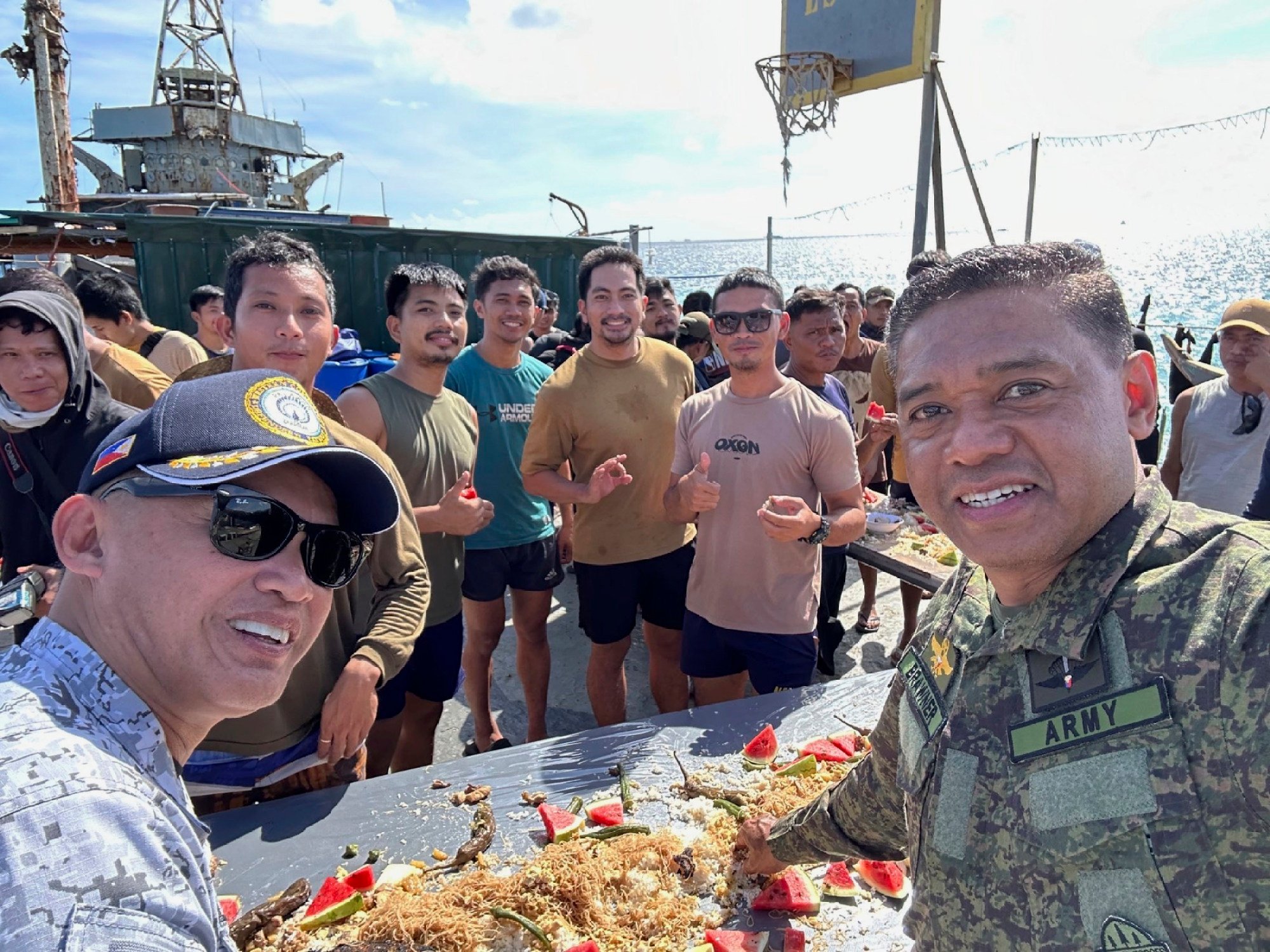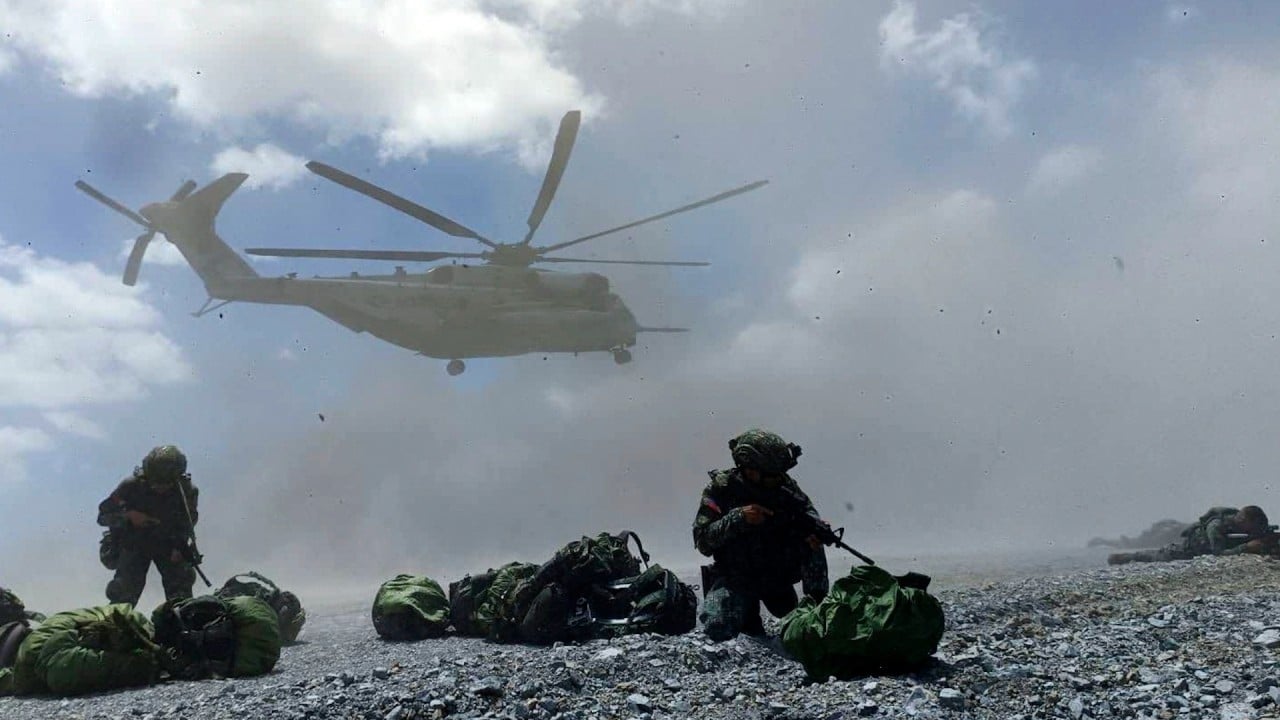Philippine defence chief Gilberto Teodoro Jnr on Wednesday said the audio recording had violated the country’s Anti-Wire Tapping Law.
Under the law, violators face imprisonment for up to six years and/or a fine of up to US$100.
“If this is true, they have also violated international relations and violated the law as they failed to coordinate with the Department of Foreign Affairs and had operated underhandedly,” Teodoro told reporters at the Philippine Navy’s Maritime Security Symposium 2024 in Quezon City.
“Did they just admit violating the law of the Republic of the Philippines? The answer to that should be asked to them. Those responsible for this must be found and identified and immediately removed from the country,” he added, noting the matter was being handled by the foreign affairs department.
Teodoro said operational security measures would be strengthened, given the fact there was “disinformation, malign influence and undesirable actions of agents of foreign governments”.
The Chinese embassy in Manila on Tuesday released a transcript of a 12-minute phone call in January in which Western Command Chief Vice-Admiral Alberto Carlos had allegedly agreed to a Chinese diplomat’s protocols for the Second Thomas Shoal, a reef among the contested Spratly Islands that lies within the Philippines’ exclusive economic zone (EEZ).
According to the phone transcript, Carlos confirmed when asked whether his superiors had approved the so-called new model.
The key points of the deal include a “1+1” format for both sides, meaning Manila would only deploy one Philippine coastguard vessel and a resupply boat to the shoal, while China would only launch one coastguard ship and a fishing boat.
The Philippines would also notify Beijing two days in advance on resupply missions – comprising only food and water – to troops manning the outpost amid close communications with both sides.
Manila reportedly followed the agreement in February, but the pact was ignored in the following month when four Filipino sailors were hurt by water cannons fired by the Chinese coastguard.
Military chief General Romeo Brawner Jnr, who was named in the transcript, on Wednesday also hit out at China over the recording.
“Transcripts can easily be fabricated, and audio recordings can be manufactured by using deep fakes. These reports only aim to serve as a distraction from the China coastguard’s ongoing aggressive behaviour in the West Philippine Sea,” Brawner said in a statement, stressing the audio clip “does not merit significant concern”.
The West Philippine Sea is the term Manila uses to describe the eastern parts of the South China Sea that are within its EEZ and territorial waters.

National Security Adviser Eduardo Año also denied China’s claim on the new model, saying it was part of fabricated stories, bluffs, and fake exchanges of communication just to support its illegal claim in Philippine territory.
“The Chinese embassy’s claim of a ‘new model’ or ‘common understanding’ is absolutely absurd, ludicrous, and preposterous,” Año said in a separate statement.
Opposition senator Risa Hontiveros said the audio recording should be made available to the government.
“If they really have a recording and if they really have a transcript, they should at least make it available to the government – to the Executive, because this ‘new model’ is another serious claim by China,” Hontiveros told the Senate, underscoring the need to unearth the truth.
“We must strive to get at the truth and uncover what is just smoke and mirrors of what they are doing,” she warned.
Retired Supreme Court justice Antonio Carpio, who was part of the Philippine delegation in a 2013 arbitration case against China, described the deal as invalid, adding Beijing had violated the Anti-Wiretapping Law, unless Carlos had agreed to be taped.
“If the Chinese embassy official is entitled to diplomatic immunity, he cannot be prosecuted but he can be expelled as persona non grata,” he said.
“What China is doing, they will just talk to everybody and say, ‘Oh, the Philippine government has committed.’ That is not proper and it will not bind us because they are talking to someone with no authority,” he added.
Carpio said the Chinese embassy should be called out for talking to Philippine government officials without going through the proper channel.
Element of deception
Jay Batongbacal, director of the University of the Philippines Institute for Maritime Affairs and Law of the Sea, said the audio recording came from a tainted source.
“Of course, you will always take it with a grain of salt. Especially these days, it is very easy to fabricate this type of information,” Batongbacal said.
“They are deliberately going around the normal channels of communications and speaking directly, perhaps to operatives on the ground. And then implying whatever the operative on the ground agreed to is already a national policy.”
Batongbacal said Carlos should be given the chance to explain and defend himself over the controversy.
“I don’t really put a stock into this. But for me, these are matters of judgment by operators on the ground. Sometimes they will be asked to make judgment calls essentially based on the situation,” he said.
Asked about China’s intention in making the leaked conversation public, Batongbacal said there was an element of deception involved, noting no sincere country should be taking such action.
“Deception should not be an instrument of statecraft and diplomacy especially for a country that claims to be always looking for stability or respect, or trying to claim the high ground.
“So far this is just the latest in a string of attempts on their part to put up the so-called arrangements which are always secret or verbal or non-binding. And then trying to bind and tell the national government to abide by the secret unofficial agreements.”


